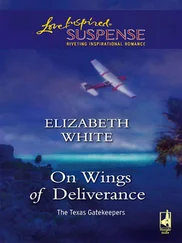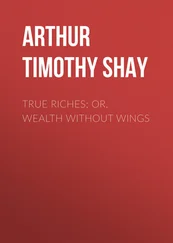The cables bounced and swayed as he inched his way out over the river, and his insides frothed with barely controlled terror. But he kept going. He even forced himself to take real footsteps instead of sliding his feet along the cable.
At the midpoint of the bridge he stopped. The fear was gone. He looked down at the river where its storybook blue reflected a single sunlit cloud. He sang. It was a song he’d learned in the fourth grade from Mrs. Boismortier.
“I am the captain of the Pinafore,” Daniel sang, “and a right good captain too. I’m very very good, and be it understood, I command a right good crew.”
From either shore choruses of admiring spectators replied, like the faintest of echoes.
He didn’t know the rest of the song, so he stopped. He looked at the sky. He was feeling terrific. If it hadn’t been for the damned handcuffs he could have flown. The air that had accepted his song would have accepted his body with no greater difficulty. He was as sure of this as he was that he was alive and his name was Daniel Weinreb.
The clouds over Switzerland were pink puffy lobes of brain with, at intervals, great splintered bones of granite thrusting up through them. She loved the Alps, but only when she was above them. She loved France too, all purposeful and rectilinear in solemn shades of dun and olive-tinged viridian. She loved the whole round world, which seemed, at this moment, to be present to view in all its revolving glory, as the Concorde rose still higher.
On the console before her she jabbed the numbers of her wish, and in an instant the beneficient mechanism beside her seat ejected yet another pink lady, her third. Apparently it made no difference, at this altitude, that she was only seventeen. It was all so lawless and lovely, and she loved it all, the pink ladies, the almonds, the off-blue Atlantic whizzing by below. She loved most of all to be returning home at long, long last and to be saying farewell and fuck you to the grey walls, grey skies, and grey smocks of Ste. Ursule.
Boadicea Whiting was an enthusiast. She could, with the same heartfelt if fleeting passion of appreciation, applaud the world’s least raindrop or its most lavish hurricane. But she was no scatterbrain. She had other passions more abiding, and the chief of these was for her father, Mr. Grandison Whiting. She had not seen him for nearly two years, not even on cassettes, since he was fastidious about his personal correspondence and would send only hand-written letters. Though he’d written quite regularly, and though he was quite right (in matters of taste he was infallible), she had missed him terribly, missed the warmth and light of his presence, like a planet kept from the sun, like a nun. What a life it is, the life of repentence — or rather, what a life it isn’t! But (as he’d written in one of his weekly letters) the only way to learn the price of something is to pay it. And (she’d replied, though the letter was never sent) pay it and pay it.
The seatbelt sign winked off, and Boadicea unstrapped herself and climbed the short windy staircase to the lounge. One other passenger had beat her to the bar, a heavy, red-faced man in a really ugly red blazer. Synthetic, she thought — a judgement against which there could be no appeal. A sin (Grandison was wont to say) may be forgiven, but not a synthetic. The man in the blazer was complaining, nasally, to the steward at the bar that every time he’d ordered a drink during takeoff the god-damn idiot machine had flashed a god-damn sign at him to say sorry, he wasn’t old enough, and god-damn it, he was thirty-two! With each god-damn, he would glance at Boadicea to see if she were scandalized. She couldn’t keep from beaming at the steward’s explanation — that the computer had got the man’s passport or seat number mixed up with someone else’s. The man mistook the meaning of her smile. With the miraculous self-regard of his kind, he came over and offered her a drink. She said she would like a pink lady.
Would four be a mistake, she wondered? Would it prevent her, when she arrived, from shining? It would scarcely do to leave in disgrace and return, two years later, drunk. So far, however, she felt in command of herself, if maybe slightly more susceptible than usual.
“Aren’t the clouds beautiful?” she said, when he’d returned with the drink and they had settled down before their first class view of heaven.
Dismissing the question with a sociable smile, he asked if this were her first trip to America. Evidently, Ste. Ursule had done its work. She said no, it had been her first trip to Europe and now she was coming back.
He asked her what she had seen. She said she’d seen art museums and churches mostly. “And you?” she asked.
“Oh, I didn’t have time to go in for that kind of thing. It was a business trip.”
“Oh. What business are you in?” She felt a guttersnipe delight in asking that most American of questions.
“I’m a representative for Consolidated Food Systems.”
“Really? My uncle is a representative too, though not for CFS. He has some connection with them, though.”
“Well, CFS is the biggest company in Des Moines, so it’s not surprising.”
“Is that where you live?”
“I live just about anywhere CFS cares to send me, and at this point they’ve sent me just about anywhere.” He had that down pat. She wondered if it were something he’d made up himself at one time, or if all the CFS salesmen learned it when they were being trained. Then he took her by surprise. “Do you know,” he said in a tone of completely believable regret, and even thoughtfulness, “I do have an apartment in Omaha, but I haven’t seen the inside of it for over a year.”
At once she felt guilty for baiting him. And why? Because he had a paunch and didn’t know how to dress? Because his voice was the whining, forlorn voice of the prairie? Because he had wanted the few minutes of their passage across the ocean to bear the stamp of an actual human encounter? Didn’t she , after all?
“Are you all right?” he asked.
“I think I may be drunk,” she said. “I’m not used to airplanes.”
The clouds were now so far below they looked like a formica tabletop, opaque white whorled with a dismal greyish blue. In fact, the ledge on which she’d placed her drink was made of just such lamentable formica.
“But I like,” she added, a little desperately, as he continued simply staring, “to fly. I think I could spend my whole life on the wing, just whizzing about like this. Whiz, whiz.”
He looked at his watch so as not to have to look before him at the blue beyond the glass. Even here, she realized, even at twenty-five thousand feet, it was bad form to praise the act and power of flight. America!
“And where do you live?” he asked.
“In Iowa, on a farm.”
“Is that so? A farmer’s daughter.” He fairly underlined his innuendo with a grin of masculine condescension.
She could not keep hold of a sense of fairness. Everything about the man was an offense to decency — his flat, uninflected speech, his complacence, his stupidity. He seemed thoroughly to deserve his wretched life, and she wanted, meanly, to make him see the actual squalid shape of it.
“Yes, that’s me. Though if one has to be any particular kind of daughter these days, that’s the kind to be. Don’t you agree?”
He agreed, with a sufficient sense of having been deflated. He knew what she meant. She meant she had money and he did not, and that this was a superior advantage to being of the advantaged sex.
“My name is Boadicea,” she informed him, seeming to offer, briefly, her hand, but then, before he could respond, reaching for her drink.
Читать дальше












